Displaced due to Salwa Judum, Dantewada's people wait to return with tides of 'development'
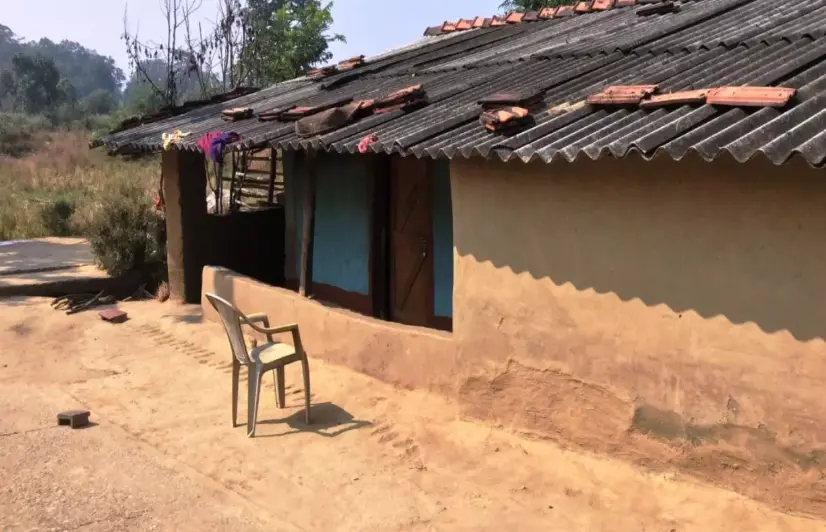
Displaced due to Salwa Judum, Dantewada's people wait to return with tides of 'development'
Fifteen years have passed since these 180 tribal families fleeing Maoist violence settled in Kasoli, Chhattisgarh. Just three kilometres away is a newly-opened bridge that promises to take them home.
Dantewada: Life at Kasoli relief camp in Geedam block of Dantewada district, Bastar subdivision is at its most usual — dogs bask in the sunshine near a stack of wooden logs, children peep from behind brightly-painted blue and green walls, occasionally adorned with painted hearts, carrying phrases like 'Hii Mom' and 'Love you, Mom', and women go about their chores — drying clothes in the sun, tending to straggly plants in kitchen gardens, stitching leaf bowls and sifting small stones from rice using a flat bamboo holder called supa. One of them breaks into a song, perhaps to pass time or even remembering their troubled past, camouflaged under the prosaic setting.
Today, the Kasoli relief camp, which sprang into existence 15 years ago in the middle of Kasoli gram panchayat, is no different from any other tribal village. The original makeshift structures have given way to permanent houses, constructed when the government extended each family Rs 12,000 to build homes. They are arranged in neat rows on both sides of the lanes, with a few shops on the main road and its own school and an Anganwadi centre.
Former sarpanch of Kasoli, Lakmu Netam (whose wife Kamla currently holds the post), said the internally displaced people had adapted well to a new life. “Today, their entire makeup and even their clothes have changed so much that it is hard to make out their origin."
The original makeshift structures have given way to permanent houses, colourful and adorned with graffiti (Picture credit - Deepanwita Gita Niyogi)
They are arranged in neat rows on both sides of the lanes, with a few shops on the main road and its own school and an Anganwadi centre (Picture credit - Deepanwita Gita Niyogi)
A few of those displaced internally were selected for jobs in the state police force but most of them are casual labourers (Picture credit - Deepanwita Gita Niyogi)
At the height of the militia movement known as Salwa Judum, nearly 1,600 internally displaced people had arrived here from the Abujhmar region. The heavily-forested Abujhmar region covers parts of Dantewada, Narayanpur and Bijapur and is home to Maria and Muria Adivasi communities, many of whom were forced to flee the violence. Laxman Mandavi, an internally displaced person living in Kasoli who is now a policeman with the state police force, remembered how six-seven families were forced to share two rooms back then. "Now, all of us have separate houses," he said wryly, adding that it still doesn't make it home.
While some people like Mandavi want to return home, for many others, the violence is still too fresh.
Fleeing from homes
The Salwa Judum was a militia group backed by the Chhattisgarh government, active from 2005 to 2011. Under the leadership of Mahendra Kamra, the state-sponsored group trained local tribal youths to take up arms against the Maoists. However, the anti-insurgency group only served to intensify the violence against civilians, who were caught in the crossfire.
Sitting in a plastic chair, Gagruram Lekam told 101Reporters, "Many of us left behind fertile lands and sought refuge here aided by the government. Overnight, landholders have turned landless labourers. Our houses were set on fire. Most of us travelled on foot, covering 35-40 km. At that time, this place was full of forests.”
Lekam, who has the job of distributing rice to ration card-holders, said the extremists wanted all villagers to support them and would not take 'no' for an answer. Killings and arson became the order of the day, he added.
Gagruram Lekam's job in the camp is to distribute government rations among the displaced, many of whom were cultivators who turned landless overnight (Picture credit - Deepanwita Gita Niyogi)
Soon, many of the displaced people scattered from the Kasoli camp; some settled in Bangapal, 32 km away, others left the state and crossed over into the then undivided Andhra Pradesh (AP). Some of these families haven't returned, still living and working in Telangana and AP. A few internally displaced people in Kasoli said that the state government tried to bring back those who had fled to the two southern states, but it was difficult to trace the families. A few come back from time to time, stay for a few months and leave again as they are always on the lookout for work.
“In the neighbouring states, the internally displaced people are not even considered tribals and do not enjoy the benefit of government schemes, having to bear expenses like rent. They are also left at the mercy of middlemen who help them get jobs and exploit them for commission. If they come back, they can save some money at least,” said Netam. He added that panchayat officials had promised work under the Mahatma Gandhi National Rural Employment Guarantee Act (MGNREGA) for those who wanted to return to Chhattisgarh.
So close to home, yet so far
But the Chhattisgarh government has done nothing concrete over the years even for the Salwa Judum displaced people scattered across the state, a social worker on condition of anonymity said.
According to Social activist and journalist Shubhranshu Choudhary, who has worked for the displaced people living in Telangana, Narayanpur’s Abujhmar region contains 232 villages from where approximately 1,000 families have been displaced. After tribals fled, the villages were reportedly occupied only by the pro-Maoist people. Meanwhile, those that fled are barely on the government's radar, he said, and have not even been given lands for cultivation near their new settlements.
Even though these people should have been prioritised for various schemes, many still find it difficult to even get work in the village under MGNREGA. Many of the houses built more than a decade ago have become so dilapidated that they cannot survive heavy rains. They hope that new houses can be constructed for them under the Pradhan Mantri Awas Yojana.
(Top) Women stitching bowls from leaves gathered from the forest, a small source of income for the families; Taking a break from work (Picture credits - Deepanwita Gita Niyogi)
The secretary of Kasoli gram panchayat, Ramdar Mandavi, claimed the displaced people are being offered MGNREGA jobs on a priority basis. Earlier, many were offered police jobs, but since only a few were selected, the others took to casual labour for their livelihood.
At the Anganwadi centre in the relief camp, worker Urmila Yadav said that while a few educated people among the displaced were selected for the police force the others had to make peace with odd jobs.
Fear of retaliation
Now that Salwa Judum is no longer a factor, several displaced people want to go back to their homes in Abujhmar which, however, is still under Maoist dominance. According to Laxman Mandavi, Abujhmar is still the same in many ways and some displaced people could be recognised upon their return, especially the elderly. Since retaliation can take place, the only option is to go back with security forces, he said.
Currently, their hopes are pinned on two bridges across Indravati river, the lifeline of Bastar. The first bridge in Chhindnar was inaugurated by Chief Minister Bhupesh Baghel on January 25, just three km from Kasoli, and another is under construction, due for completion by this year-end. Once this happens, those willing to return can take a chance, along with security forces, said Dantewada BJP president Chaitram Atami.
Social worker Pramod Potai, based in Narayanpur district, said that in the absence of bridges, people rely on boats for transportation. But the bridges are necessary to ensure the movement of security forces and the safe delivery of essential rations for the public distribution system, especially during the monsoon.
Meanwhile, Dantewada District Collector Deepak Soni said if the displaced people "want to go back, we would help them in their resettlement, but till now I have not received any such request from them. One bridge on the Indravati river was recently inaugurated. So, a lot of areas would become peaceful. Now, people would certainly want to go back."
Would you like to Support us
101 Stories Around The Web
Explore All News
Jun 11
‘’मलेरियाने माझा मुलगा अन् नवरा बी मेला’’... गडचिरोलीमध्ये तापमान बदलाचा आणि डासांचा काय आहे संबंध?

Jun 11
ओडिशा : जलवायु चुनौतियों से निबटने मैंग्रोव संरक्षण के कार्य में जुटी महिलाओं की कहानी
-5.webp&w=3840&q=75)
Mar 27
A Painful Period In The Salt Pans Of Little Rann Of Kutch
-13.webp&w=3840&q=75)
Mar 27
Madhya Pradesh: Where is Our Free Time?
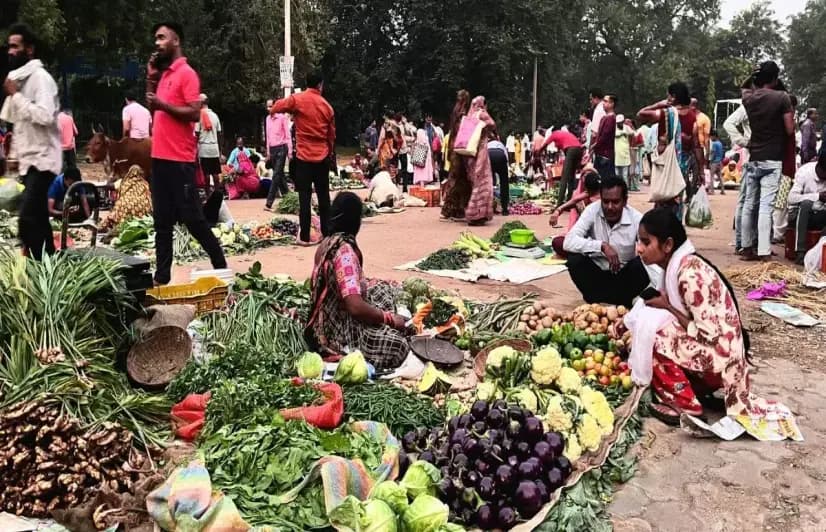
Feb 02
Dilemma Faced By Poor Farmers In Bundelkhand: Grow Organic While Selling Non-Organic

Feb 02
Giridih saves its village ponds with NITI Aayog's help
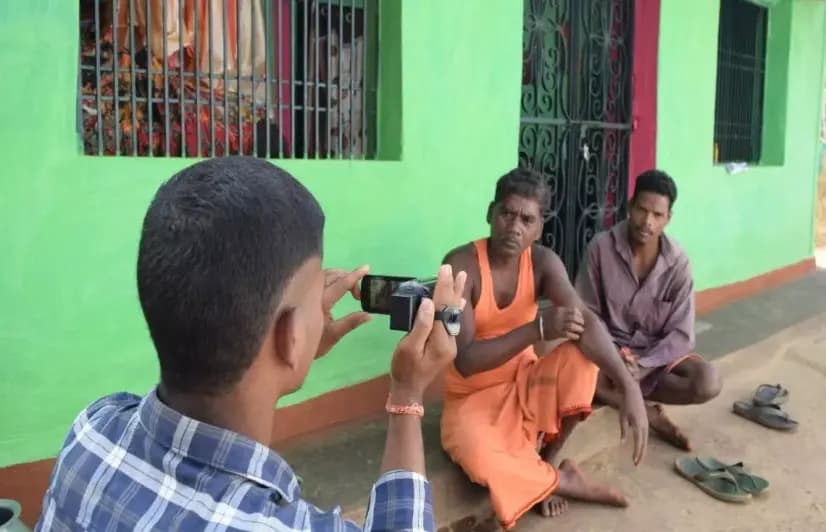
Jul 29
Odisha students use mobile cameras and pens to preserve village history
-18.webp&w=3840&q=75)
Jul 29
Rajasthan: Fasal Bima Yojana and the Art of Minimising Payouts
-16.webp&w=3840&q=75)
May 25
Waste to wealth: Bhopal district panchayat spends Rs 75,000 per month to earn just Rs 4.5 lakh a year
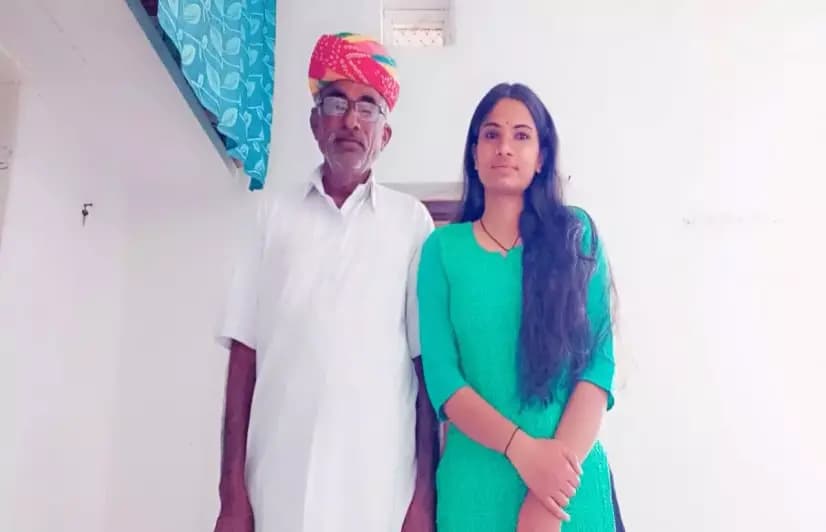
May 10
A Victory For Unmarried Rajasthani Women As Anganwadi Positions Open For Them
About the Reporter
Top stories by Deepanwita Gita Niyogi
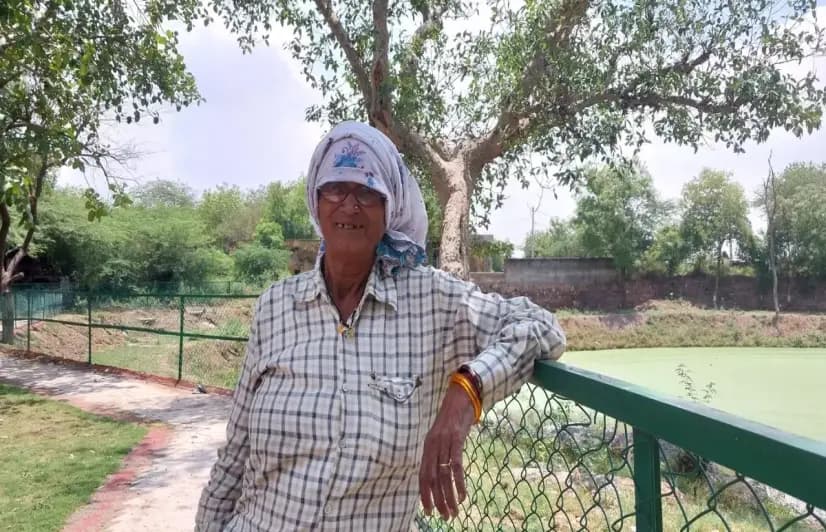
_(1).webp&w=3840&q=75)
.webp&w=3840&q=75)
Write For 101Reporters
Would you like to Support us
Follow Us On
Editor's Pick
Surviving on mercy: Temporary sanitation workers in rural Tamil Nadu earn less than minimum wage
How Kerala heatwaves are boiling over to construction workers’ personal lives
Empowering didis: In Burhanpur, management of ration shops is boosting women’s confidence and financial independence
No childhood in the mangroves: What is the climate change’s toll on Sundarbans youth
In the remote, tribal villages of Gadchiroli, climate change is breeding malaria
Discontent and misgovernance as Tamil Nadu postpones panchayat elections
Curse of the canal: Seepage and waterlogging lay waste to agriculture in Rajasthan's Luni delta
Assam's ‘left-behind’ women wage lonely, futile battle against extreme floods
'Now we want the chair': Kashmir’s women SHG leaders gear up to fight panchayat elections
Recommended Topics









